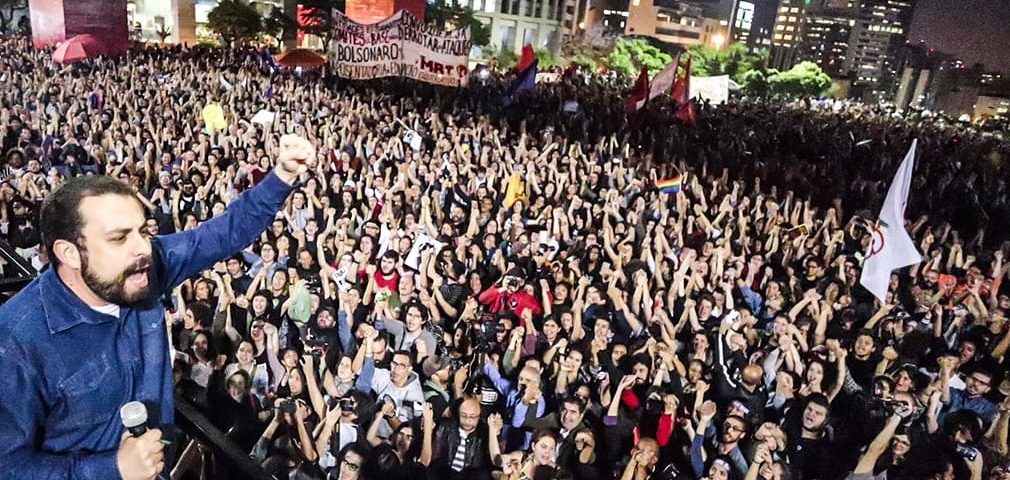Peter Solenberger
November 21, 2018
On October 28 rightwing demagogue Jair Bolsonaro was elected Brazil’s president. On November 11 the National Directorate of the Party of Socialism and Liberation (PSOL) adopted the resolution Organize Resistance and Popular Unity against Bolsonaro outlining PSOL’s tactics for the next period. Brazilian supporters of the Fourth International (FI) participate in PSOL, which makes it a sister organization of Solidarity.
The Solidarity Webzine has published articles on the developing situation in Brazil since the murder of PSOL leader Marielle Franco in March. This is the fifth. The four previous ones were:
Our Comrade Marielle Franco Murdered
Brazilian Women Unite Against Far-Right Presidential Candidate
The Bolsonaro Effect
#EleNão (not him): Defeat Bolsonaro and defend rights!
We’ve published these articles because of the importance of Brazil, the largest country in Latin America by area, population and economy, but also because the Brazilian experience sheds light on the the U.S. experience. Brazil is economically less developed than the U.S., but politically more developed.
From 2003 until 2016 the Workers Party (PT) governed Brazil, first with Lula as president and then with Dilma Rousseff. The PT enacted many reforms but kept Brazil within the neoliberal capitalist order. The PT leaders kept their promises to the capitalists more faithfully than they kept their promises to the workers.
With the Great Recession Brazil’s economic expansion ended. Poverty deepened, inequality grew, crime worsened, and PT leaders, including Lula, became tainted with corruption. The PT’s working-class base became demoralized and withdrew. This allowed the right to carry out a “soft coup” to remove Rousseff as president and then to jail Lula to prevent him from running again. Very likely Lula would have beaten Bolsonaro, if he had been allowed to run.
With the failure of the left, many Brazilians, including sectors of the working class, turned to the right. They saw Bolsonaro as a strong man who could end the chaos and “make Brazil great again.” He won’t, but he may do a great deal of damage before the Brazilian working class can turf him out.
The resolution shows a revolutionary socialist party seeking to find its way in an even more polarized situation than the one we face. We can learn from their experience.

